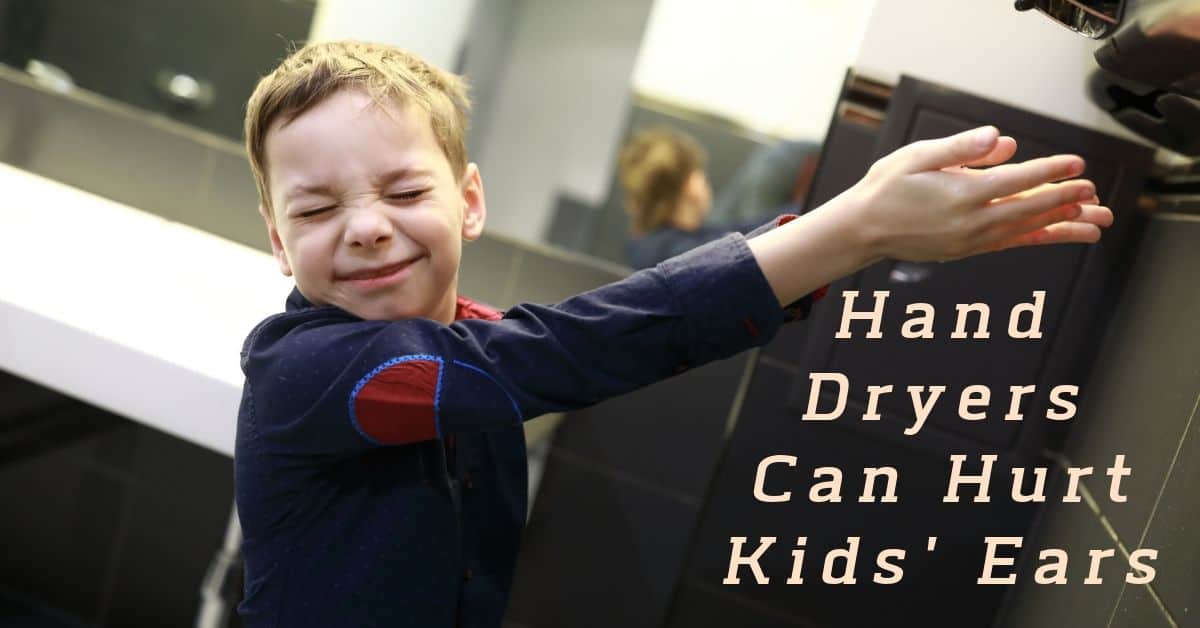Hand Dryers Can Hurt Kids’ Ears
Prolonged exposure to loud noise – over 80 decibels – or the exposure to a single loud noise can cause hearing damage. Children, because their ears are still developing, are susceptible to hearing damage from sounds that adults wouldn’t even consider as being harmful. If you suspect your hearing has been damaged or that someone in your family may have hearing loss, make an appointment today at Desert Valley Audiology.
Damage from Hand Dryers
Sometimes the most innocent things can pose a danger you might not even have thought about. One youngster in Canada noticed she would have ringing in her ears after using the hand dryers in public restrooms. She also noticed other children were sometimes reluctant to use the dryers and other children would cover their ears when they were near a dryer.
Her theory was the sound volume of the dryer was harming children’s ears and she set out to research that theory. Using a decibel meter, she measured the volume of dryers at various heights. She discovered the dryers were loud and the dryers were set at a height that made the noise louder for children. Her decibel reading showed the two most common hand dryers used in public restrooms operated at a volume over 100 decibels!
A volume of over 100 decibels is a volume that can lead to learning disabilities, attention difficulties and even ruptured ear drums. One dryer came in with a level of 121 decibels and in Canada, where the research was done, toys that had a sound level over 100 can’t be sold to children because of the potential for damage.
And while some dryers had volume levels that were acceptable for adults, because of their lower placement and the height of children, the volume was not acceptable for children.
Children and Hearing Loss
John Hopkins University researchers have studied hearing loss in children. They noted that children are frequently around noise that is louder than 85 decibels. As a sort of benchmark, remember that the average conversation is done at 60 decibels.
Loud noises, especially for children, can damage the hair cells in the inner ear as well as the hearing nerve. Hearing loss may happen right away or over time. There are loud noises everywhere. There are loud volume appliances, from hair dryers to food processors and blenders, there’s traffic noise and subway noise and noise from leaf blowers and lawn mowers.
Children are also susceptible to noise induced hearing loss because they may play their personal music devices louder than they should. Adults need to be aware of noise in the environment and protect children from noise adults may find acceptable, but children do not.
Symptoms and Effects of Noise Induced Hearing Loss
Symptoms of noise induced hearing loss include a ringing or buzzing in the ears and trouble hearing soft or faint sounds. Conversation may also sound muffled. Exposure to loud noise, in addition to damaging hearing, has other dangers including high blood pressure, increased heart rate, upset stomach, difficulty sleeping, irritability and increased fatigue as well as muscle spasms, trouble concentrating and memory issues. You may also notice personality changes including aggressive or violent reactions to events or situations that didn’t usually cause problems.
Be especially aware of environmental noises you as an adult may just find irritating, but they could harm a child’s hearing. The World Health Organization noted children living in apartments near a busy highway were subjected to a constant 55 to 60 decibel noise even when living on the 32nd floor. Children living near railroads subjected to noise from an average amount of trains each day were three to four months behind in their reading levels compared to children who weren’t living near a rail system.In summary, children have a very different perception of what is “noise” and what is “harmful.” They are vulnerable to noise in settings that adults might not be. They have a lack of ability to control their environment while adults do have that ability. Be aware of what is happening at their schools and even their day care. A large construction project near a day care or their school could pose potential hazards. Teach your child that ear plugs or noise cancelling headphones are ways to protect their hearing.
Desert Valley Audiology
Remember, it is never too early to set a baseline for your child’s hearing. At Desert Valley Audiology, we provide pediatric hearing services. Call Desert Valley Audiology today and get an early start on good hearing habits.

